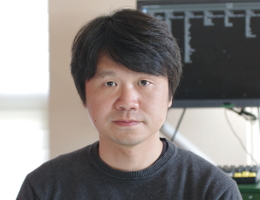SunPath Lab on genomic TH
About the PI

Ruping Sun
Assistant Professor
Advanced Cancer Genomics and Bioinformatics
Department of Laboratory Medicine and Pathology
Member of Masonic Comprehensive Cancer Center
University of Minnesota Twin Cities
ruping at umn dot edu *
With a background in computational biology and cancer genetics, my research centers on cancer genomics and tumor evolution. I am particularly interested in testing fundamental hypotheses about how aneuploidy arises in cancer and how it affects cellular fitness—especially in the context of the recurrent aneuploidy patterns frequently observed in advanced-stage tumors. While model systems provide essential mechanistic insights, my work places a strong emphasis on patient-derived data to capture the complexity of aneuploidy in its native tumor context.
To this end, I have developed substantial expertise in analyzing genomic variants and modeling cancer evolution using patient tumor data. Early in my postdoctoral training, I implemented algorithms to detect structural variants from whole-genome and RNA sequencing of cancer specimens (Sun et al., Bioinformatics 2012; Fernandez-Cuesta and Sun et al., Genome Biol. 2015). I then shifted focus to characterizing clonal evolution in cancer through the analysis of multi-region, longitudinal, and single-cell sequencing datasets from clinical samples. This led me to incorporate evolutionary dynamics into models of intra-tumor heterogeneity (Sun et al., Nat. Genet. 2017; Sun et al., PLoS Comput. Biol. 2021) and to estimate clinically relevant parameters for patient tumor growth (Hu et al., Nat. Genet. 2019; Leder et al., J. Math. Biol. 2024).
My long-term goal is to bridge intra-tumor heterogeneity with analytical modeling to prioritize specific aneuploidies for early detection or therapeutic targeting. By analyzing multi-sampled tumor specimens, I develop computational tools to reconstruct the evolutionary trajectories of aneuploidies during patient tumor development. For example, my group published a framework to infer the timing of aneuploidy acquisition during somatic evolution leading to the tumor founder clone (Wang et al., Nat. Commun. 2024). In parallel, we collaborate with experts in cancer aneuploidy to both cross-validate our findings in patient tumors and explore cancer type-specific vulnerabilities linked to recurrent aneuploidy patterns. In collaboration with Dr. Sheltzer, for instance, we showed that tumor cells can become “addicted” to specific aneuploidies, such as trisomy 1q (Girish et al., Science 2023). With these experiences, I am well-prepared to lead a team to explore patient data and engage in cross-disciplinary collaborations.